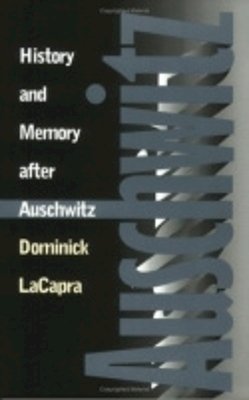
History and Memory After Auschwitz
Dominick Lacapra
The relations between memory and history have recently become a subject of contention, and the implications of that debate are particularly troubling for aesthetic, ethical, and political issues. Dominick LaCapra focuses on the interactions among history, memory, and ethicopolitical concerns as they emerge in the aftermath of the Shoah. Particularly notable are his analyses of Albert Camus's novella The Fall, Claude Lanzmann's film Shoah, and Art Spiegelman's "comic book" Maus. LaCapra also considers the Historians' Debate in the aftermath of German reunification and the role of psychoanalysis in historical understanding and critical theory. In six essays, LaCapra addresses a series of related questions. Are there experiences whose traumatic nature blocks understanding and disrupts memory while producing belated effects that have an impact on attempts to address the past? Do some events present moral and representational issues even for groups or individuals not directly involved in them? Do those more directly involved have special responsibilities to the past and the way it is remembered in the present? Can or should historiography define itself in a purely scholarly and professional way that distances it from public memory and its ethical implications? Does art itself have a special responsibility with respect to traumatic events that remain invested with value and emotion?
Product Details
About Dominick Lacapra
Reviews for History and Memory After Auschwitz
Holocaust and Genocide Studies
Concerned primarily with the generations of individuals who did not experience Nazi horror directly yet who have lived with its memory all of their lives, the book launches a thoughtful probe into some of the ensuing problematics.... LaCapra's admission, that memory work even succeeds against the grain of temporal progression, is key to understanding the power with which memory and history proceed. And in History and Memory after Auschwitz, he displays that paradox in compelling detail.
Barbie Zelizer, University of Pennsylvania
Bryn Mawr Review of Comparative Literature
LaCapra's argument that Camus must be read in light of the Holocaust is definitely thought-provoking.
Jewish Book World
LaCapra's conclusions are convincing.... A rewarding... intellectual exercise.
Times Literary Supplement
Profoundly thoughtful and humane reflections on a subject of utmost importance, not only to Jews and Jewish culture, but to Western culture itself.
Emily Miller Budick, The Hebrew University
Studies in Contemporary Jewry, An Annual
